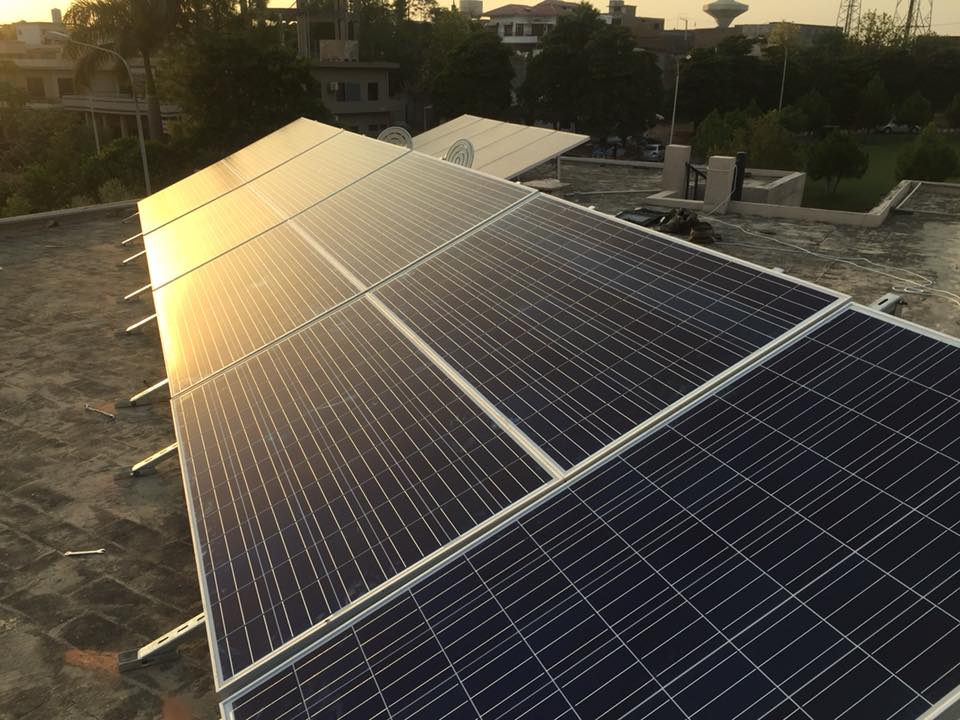As one of the signatories of the Paris Agreement in 2016, Pakistan has been pursuing low-carbon energy options. Among the renewable energy sources, hydropower has been the most prominent, comprising almost a third of the country’s electricity generation. However, it is by increasing the role of solar, wind and biomass among its energy sources that Pakistan could reap social and economic benefits.
A new report prepared by the International Renewable Energy Agency (IRENA) in cooperation with the Government of Pakistan provides an overview of the country’s energy sector and offers recommendations on how to further utilize its renewable resources.
Overview
Although, the cost of renewable energy projects in Pakistan has come down significantly, they are still generally higher than thermal energy. Therefore, in addition to a net metering scheme introduced in 2015 and updated in January 2018, power market regulator, NEPRA issued directives in January 2017 for future utility-scale wind and solar PV projects to undergo a competitive bidding process as solicited projects.
In terms of solar, a watershed moment was the completion of 400 MW of solar PV projects in 2015-2016, helped by the decline in solar PV technology costs.
According to the report, titled Renewables Readiness Assessment, the sector is now taking off with 24 additional letters of intent issued by the Alternative Energy Development Board (AEDB), amounting to a total installed capacity of 556.5 MW, at an advanced stage of completion.
Additionally, Punjab has issued eight letters of intent for 1,419 MW, Sindh has issued 17 letters of intent for 1,200 MW and Khyber Pakhtunkhwa has issued one letter of intent for a 50 MW project, the report shows.
In recent years, Pakistan has seen a surge in providers offering a range of solar home system products, including solar water pumping systems, solar lighting solutions and solar water heaters. However, the country’s own solar industry is still nascent.
According to IRENA, it currently employs over 15,500 people, but the government has recognized its potential to boost both employment in the country and establish an affordable energy alternative. This was recently confirmed by Prime Minister, Shahid Khaqan Abbasi, when he invited Trina Solar to set up manufacturing facilities in Pakistan, promising to provide full support and tax incentives.
Among Pakistan’s rural population only a half have access to electricity. That is why the Government of Punjab has introduced the Access to Clean Energy Investment Program, a rural electrification scheme, developed with the goal of reducing the burden on the national grid and with specific emphasis on solar PV systems for schools in off-grid localities.
Discussing the potential of other renewable energy sources, IRENA notes that hydropower has a sizable share in Pakistan’s energy mix, with 7.1 GW of installed grid-connected capacity, and finds that the country has up to 60 GW of economic and technical hydropower potential.
Popular content
Furthermore, it identifies 50 GW of theoretical wind potential in Pakistan’s southern Sindh and Baluchistan provinces.
With more than half of Pakistan’s total population residing in rural areas, millions remain reliant on traditional biomass use. IRENA estimates that 25 million tons of biomass feedstock from industrial and agricultural residue can be made available for use annually.
“Pakistan is rich in renewable energy potential, and can with this assessment develop policies, investment opportunities and energy development actions to harness it,” said Abid Sher Ali, Pakistan’s Minister of State for Power. “Critical to this report has been IRENA’s valuable policy guidance and technical assistance to determine our best available renewable-based power options,” added Ali.
Major recommendations
In its report, IRENA presents options for Pakistan to strengthen its policy, regulatory and institutional framework, in order to accelerate renewables deployment.
It points out that the country needs to set a target for renewable energy development, as well as coordinate the development and implementation of an integrated energy plan.
Moreover, it is suggested that Pakistan should encourage renewable energy zoning and competitive procurement to reduce overall system costs.
The report goes on to identify the need for involvement of the private sector in the development of transmission infrastructure, which would ensure enhancement of the grid, as well as call for a comprehensive distributed power generation plan, and suitable policy and regulatory frameworks, and implementation mechanisms that facilitate private-sector engagement in rural electrification.
“Pakistan is undergoing rapid economic and industrial development, which in turn is fueling strong energy demand growth across the country,” said Adnan Z. Amin, IRENA Director-General.
“To meet this demand Pakistan has a tremendous opportunity to cost-effectively tap its abundant solar, wind and hydropower resource potential. Doing so would support national prosperity and job creation, whilst enhancing security of supply, improving access and moving Pakistan towards greater energy independence.”
This content is protected by copyright and may not be reused. If you want to cooperate with us and would like to reuse some of our content, please contact: editors@pv-magazine.com.



The article alleges that renewable power presently in Pakistan is more costly than Thermal. which is totally incorrect and misrepresentation of actual facts and ground realities. In fact, Thermal power based on furnace oil is the most expensive. Also those on Natural Gas and LNG are providing power at Tariff 8.25 US cents plus the capacity payments leading to circular debts. Current wind,solar,hydro, biomass are being offered at 5.5-7.5 cents which are the lowest rates in the energy market.
Mr Saleem Bandukda, Do you any evidence of what you said? Please share.
jawadiqbal828@hotmail.com